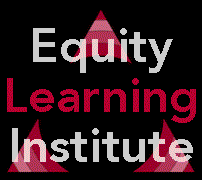Jump to: Strategies and Preparation |
Icebreakers |
Introspectives
Strategies and Preparation:
 Strategies for Choosing and Using Activities and Exercises for Intergroup Learning
Strategies for Choosing and Using Activities and Exercises for Intergroup Learning
You're developing a diversity workshop or facilitating an intergroup dialogue and looking for ways to engage your participants. This document lays out eight strategies for effectively selecting and incorporating activities and exercises into your programming efforts.
 A Guide to Setting Ground Rules
A Guide to Setting Ground Rules
Ground rules or community norms can help your program or class run more smoothly. This guide describes commonly used ground rules and strategies for naming and enforcing them.
Icebreakers:
 Name Stories
Name Stories
Works toward bringing the stories of individuals to the fore in the multicultural experience. Participants write and share stories about their names and nicknames, what they mean, why they were given them, and how they relate to them.
 Sharing Ourselves: "Who I Am" Poems
Sharing Ourselves: "Who I Am" Poems
Begins active introspective process while continuing to provide opportunities for individuals to make connections with each other. Participants write short poems, starting each line with "I am...," encouraging them to describe in their own words who they are and what's important to their identity.
Introspectives:
 The Depth and Breadth of "Multicultural"
The Depth and Breadth of "Multicultural"
Explores the definition of "multicultural," the dimensions of culture, and the consistency with which we define our culture and the cultures of others. Participants go through a series of steps to gain a better understanding of the complexity of "multicultural"ness, and are then challenged to apply this both to themselves and to how they understand each other. An extra step challenges educators to rethink their conceptualization of "Multicultural Education" based on their perceptions of their own cultural dimensions.
 Understanding Prejudice and Discrimination
Understanding Prejudice and Discrimination
Introduces concepts of prejudice and discrimination through self-reflection. Participants share stories regarding their experiences with prejudice or discrimination, as either victim or perpetrator.
 Exploring Definitions
Exploring Definitions
Considers language as a vital aspect of multicultural education and awareness. Participants discuss how they define words such as prejudice, discrimination, racism, sexism, classism and homophobia. Issues of power and institutional discrimination emerge.
 Circles of My Multicultural Self
Circles of My Multicultural Self
The Circles activity engages participants in a process of identifying what they consider to be the most important dimensions of their own identity, concurrently developing a deeper understanding of stereotypes as participants share stories about when they were proud to be part of a particular group and when it was especially hurtful to be associated with a particular group.
 Inclusion/Exclusion
Inclusion/Exclusion
Participants share their own experiences as students, exploring different ways people are made to feel included in, or excluded from, the learning process. The existence of different learning needs and the necessity for a wide range of teaching styles emerge.
 Student Fishbowl
Student Fishbowl
A student fishbowl gives pre-service and in-service educators an opportunity to hear the experiences, ideas, and critiques of current students while giving the students an opportunity to be active in the dialogue on multicultural education and education transformation.
 Equity Awareness Quiz
Equity Awareness Quiz
Critical thinking about all media and information is an essential aspect of equity learning. Test your and your students' or participants' understanding of race, gender, and socioeconomic class with this activity, leading seamlessly into a dialogue on stereotypes, misinformation, and prejudices and how they inform teaching and learning.
 Facilitating the Difficult Dialogue: Role Plays
Facilitating the Difficult Dialogue: Role Plays
Teachers are often hesitant to introduce topics like racism, sexism, classism, and heterosexism in the classroom because their training has not prepared them to handle the issues and exchanges that may result. This activity provides participants an opportunity to share stories about when discussions about these topics took an unexpected turn they were unprepared to handle, then to share ideas about how to address these circumstances in the future.
 Collaborative Problem-Solving: Case Studies in Education
Collaborative Problem-Solving: Case Studies in Education
The purpose of this activity is to engage teachers in a process of collaborative problem-solving around multicultural issues through the use of case studies. Participants will develop an understanding and appreciation for the necessity to include a variety of voices and perspectives to successfully address issues that arise around race, gender, culture, sexual orientation, or any other identity dimension. They will also begin to better understand the collaborative process and how they tend to participate in it.









